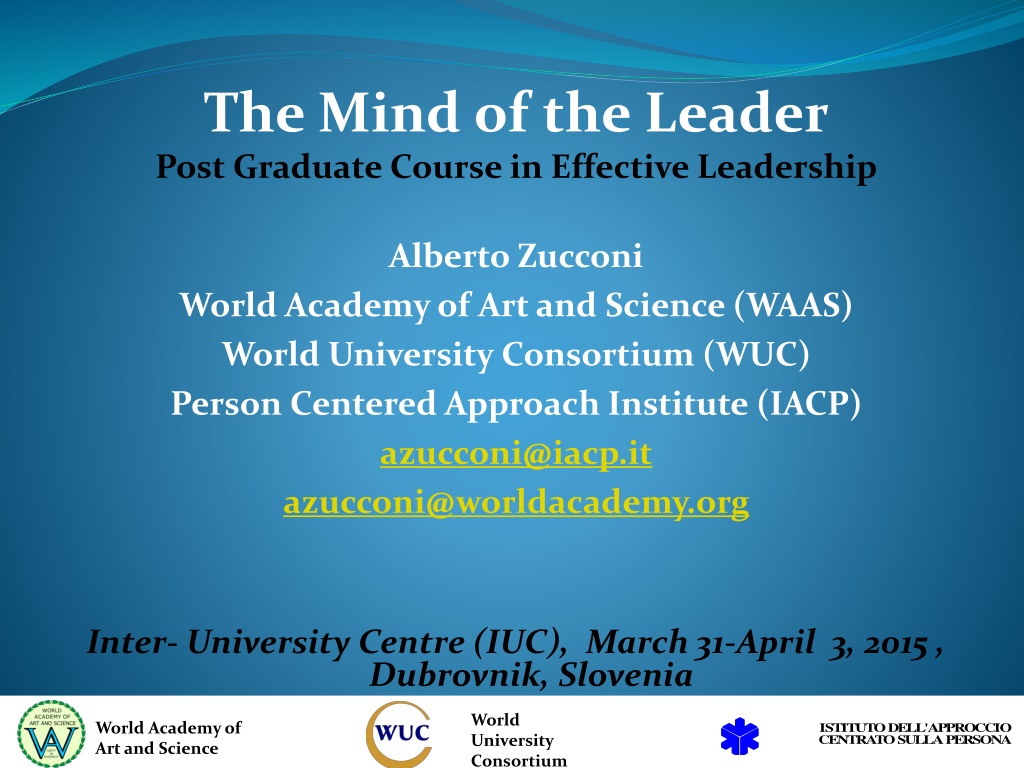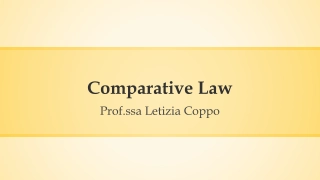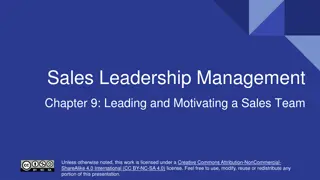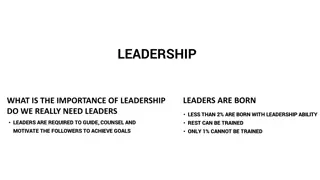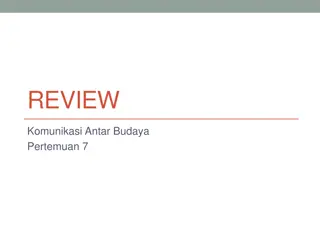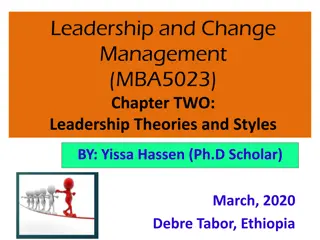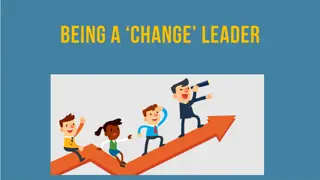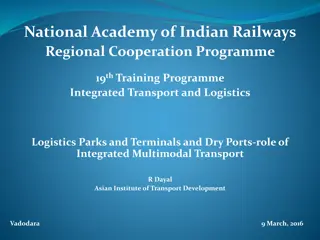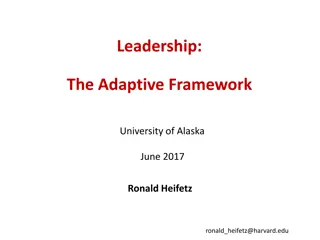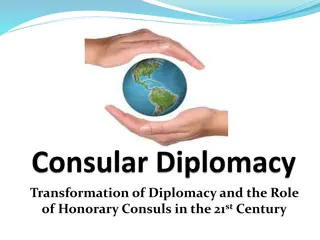Leadership Challenges in a Globalized Era
Leaders play a critical role in navigating the complexities of a globalized world. The course explores the characteristics of effective leaders, contrasting them with toxic and destructive leadership traits. Delve into the psychological aspects of leadership to understand the impact of different leadership styles on organizations and society. Gain insights from renowned thinkers like Albert Einstein and delve into the necessity of developing new approaches to solve contemporary challenges.
Download Presentation

Please find below an Image/Link to download the presentation.
The content on the website is provided AS IS for your information and personal use only. It may not be sold, licensed, or shared on other websites without obtaining consent from the author.If you encounter any issues during the download, it is possible that the publisher has removed the file from their server.
You are allowed to download the files provided on this website for personal or commercial use, subject to the condition that they are used lawfully. All files are the property of their respective owners.
The content on the website is provided AS IS for your information and personal use only. It may not be sold, licensed, or shared on other websites without obtaining consent from the author.
E N D
Presentation Transcript
The Mind of the Leader Post Graduate Course in Effective Leadership Alberto Zucconi World Academy of Art and Science (WAAS) World University Consortium (WUC) Person Centered Approach Institute (IACP) azucconi@iacp.it azucconi@worldacademy.org Inter- University Centre (IUC), March 31-April 3, 2015 , Dubrovnik, Slovenia World University Consortium ISTITUTO DELL'APPROCCIO World Academy of Art and Science CENTRATO SULLA PERSONA
WE live in a period of globalization and of growing complexity To meet our present and future challenges we need new effective ways to cope and effective leaders to help us to win those challenges
The state of human affairs shows that there are several barriers that make it difficult to understand the real nature of the problems we urgently need to face
Albert Einstein once said: We cannot solve the problems of today at the level of thinking at which they were first created
What Eisteinsaid is drammatically trueand on the samepremises : We cannot solve the problems of today following the leaders who led us in this mess!
A leader issomebodywho leads but that is notautomatically bringing positive results. Unfortunatelya lotof leaders in history have been famous for theirdestructivity, cruelty and psychopathology ..
Le Bon, Fromm, Adorno, Lasswell, Reick and manyothers studied the Psychopathologyof toxic, destructive leaders while Maslow, Rogers, Gordon, Bugenthal and othersdid research the personality traits of healthyand effective leaders
"Psychopaths are social predators who charm, manipulate, and ruthlessly plow their way through life, leaving a broad trail of shattered expectations, and empty wallets. Completely lacking in conscience and in feelings for others, they selfishly take what they want and do as they please, violating social norms and expectations without the slightest sense of guilt or regret." Robert Hare
DISFUNCTIONAL LEADERS Glibness/Superficial charm Manipulative and cunning Grandiose sense of Self Pathological lying Shallow emotions Incapacity for love Need for stimulation Callousness, lack of empathy Irresponsibility/unreliability Developmental problems, juvenile delinquency Promiscuous sexual behaviors Parasitic lifestyle Criminal versatility
The narcissistic leader promotes a personality cult, almost a new religion with rituals, temples, worship and mythology. Many narcissistic and psychopathic leaders are the hostages of self-imposed rigid ideologies. The narcissistic leader lacks empathy for their subjects that are considered just a tool to be manipulated or sacrificed in order to reach the leader inflated and grandiose destiny
Gustave Le Bon (1895) affirms that leaders are often people so driven by ideological faith they have almost lost the instinct for self-preservation. This ideological zeal enables them to appeal to the base instincts of followers who, through faith, may follow their leader along a path of self- destruction. Ideology is the tool used by despots to gain and retain power. Through ideology, the tyrant expresses his narcissism and creates solidarity with followers. Erich Fromm (1941), suggests that people may be attracted to totalitarian leadership as a way to escape the anxiety associated with the fear of making a bad choice.
This is precisely the source of the fascination with Hitler, diagnosed by Erich Fromm - together with Stalin - as a malignant narcissist. He was an inverted human. His unconscious was his conscious. He acted out our most repressed drives, fantasies, and wishes. He was not the devil. He was one of us. He was what Arendt aptly called the banality of evil. Just an ordinary, mentally disturbed, failure, a member of a mentally disturbed and failing nation, who lived through disturbed and failing times. He was the perfect mirror, a channel, a voice, and the very depth of our souls. The narcissistic leader prefers the sparkle and glamour of well-orchestrated illusions to the tedium and method of real accomplishments. His reign is all smoke and mirrors, devoid of substance, consisting of mere appearances and mass delusions.
As their end draws near, narcissistic-psychopathic leaders act out, lash out, erupt. They attack with equal virulence and ferocity compatriots, erstwhile allies, neighbours, and foreigners. All populist, charismatic leaders believe that they have a "special connection" with the "people": a relationship that is direct, almost mystical, and transcends the normal channels of communication. He projects onto others his own shortcomings and negative emotions, thus becoming a totally good object. A narcissistic leader is likely to justify the butchering of his own people by claiming that they intended to assassinate him, undo the revolution, devastate the economy, harm the nation or the country, etc.
Eric Fromm believed that Hitler possessed an intense narcissism, destructiveness, and a profound inability to relate toothers. Hitler destructive leadership skills were matched only by few in the world. As the chancellor of Germany waged a most destructive war not only to neighboring nations but to millions of his citizen that in his delirium where to be exterminated to give rise to a pure race.
From the very beginning, Mussolini made it a point to create for himself mythological prestige and gain legendary status It is necessary to be very intelligent in the work of repression. All opposition journals have been suppressed and all the anti-fascist leaders dissolved. -Benito Mussolini
The combination of paranoid personality disorder, alcohol abuse, intelligence, and a cruel nature created the foundation for Stalin s infamous mass killings. Stalin controlled everybody through fear fear of death, fear of torture, fear of exile. His belief that everyone was plotting against him contributed to him forcing confessions out of many innocent people (Stal 2013). He felt that if he had a scapegoat, then he was closer to eliminating the prospect of his defeat (Volkogonov, 1988).
From the standpoint of social development, the family cannot be considered the basis of the authoritarian state, only as one of the most important institutions which support it. It is, however, its central reactionary germ cell, the most important place of reproduction of the reactionary and conservative individual. Being itself caused by the authoritarian system, the family becomes the most important institution for its conservation . Wilhelm Reich
Fortunately there are also Effective Leaders The leader as a fully functioning person An effective leader is a person that feels (and not fakes ) genuine respect , trust and emphatic understanding of the people around him/her. (Carl Rogers ) The leader as a high performer He/she is a role model and posses the psychological, emotional, and interpersonal skills necessary perform at a high level consistently. A leader that is willing to recognize mistakes and learn from them. The leader as team builder Capable of recognizing and prizing other people capacities and contributions, trusting and empowering people, capable of team building.
The leader as decision maker Effective leaders are not afraid to take decisions after asking the input of their people and advisers, they are capable of giving and receiving useful feedback and prepare their people to perform their best during times of uncertainty, instability, and crisis. The leader as change agent The role of leadership is to envision a better future and become the change agent that makes this future possible. The effective leader promotes a culture of learning and takes great pleasure in facilitating new young leaders to emerge.
The healthy person experience well-being and satisfaction with the past, flow, joy, sensual pleasures, happiness in the present, optimism, hope, faith . The healthy individual has positive personal traits, such as the capacity for love and vocation, courage, interpersonal skill, aesthetic sensibility, perseverance, forgiveness, originality, future-mindedness, talent, wisdom . The healthy person at the social level has responsibility, nurturance, altruism, civility, moderation, tolerance and work ethic Mischel, Shoda & Ayduk (2009 p.341)
George Washington, he led the American Revolution and later, led the USA into the first few Years of it s independence as the First President of the USA. He was a visionary and his tenacity, steadfastness, his ability to make decisions during difficult times made him a great leader.
Asoka the Great was the last of the great Indian empire of Maurya and he ruled from 269 BC. He was a kind and a good-hearted leader. After the bloody Kalinga War, he was so deeply moved and pained by the suffering that he renounced his throne and all his wealth and adopted Buddhism and he preached to the people those values.
Mohandas Karamchand Gandhi, born as an ordinary boy he later became known as the Father of the Nation. Mahatma Gandhi led India against the tyrannical rule of the British Empire. He fought always practicing non-violence. He believed that truth and only truth shall prevail and without harming a single soul. The British left India and Gandhi became one of the greatest leaders of all the times.
Martin Luther King Jr. was an activist and a leader in the civil rights movement. He was also a member of the clergy. He is known for the non-violent ways in which he advanced and led the civil rights movement. He fought for racial equality and showed the people a picture of a better future where all men are equal. Courage, perseverance and the will to fight for what's right till the very end made him a great leader. He won The Nobel Peace Prize in 1964.
Nelson Mandela was the first democratically elected President of South Africa. He was the leader of the Anti- Apartheid movement and all through his life, he relentlessly fought against racial discrimination. For his actions, he served a long prison sentence but even that did not deter him. He came out as a hero and led the country into a free, equal future. His determination, focus and will-power were tremendous that even after serving almost 30 years in jail, he got out, never sought revenge, but successfully worked for a peaceful and integrated South Africa.
Aung San Suu Kyi, the Nobel Peace Prize winner gave up freedom and a life with her family in Britain to protest military rule in Burma (now Myanmar). But nearly two decades of house arrest could not quash the opposition leader's determination.
How reality is socially construed and how individuals and organizations construe their experiences are relevant to the understanding of why narcissistic and psychopathic leaders find a lot of adoring followers as well as how parents, schools and communities can promote the development of healthy personalities and effective leaders.
We need to ask ourselves some basic questions: How our social and personal Selves are socially structured? Is the present social construction of reality and of personal and social selves is effective for promoting the sustainable development of human potentialities of all the people & the living forms of our planet or is it dysfunctional?
How we construe our experiences & our narratives makes a big difference Differing values, concepts of reality, of human nature, generate different relationships, priorities, goals & actions based on strategies of: Empowerment or Disempowerment
Empowerment Disempowerment 1.Democratic relationships 2.Equal rights & opportunities 3.Promotes responsibility 4.Bio-Psycho-Social Paradigm 5.Health Promotion 6.Patient Centered Medicine 7.Biofeedback, neurofeedback 8.Transparency, shared knowledge 9.Person Centered & People Centered 10.Capacity for deep contact, empathy 11. Respect forall the life forms 12.Microcredit, sustainable entrepreneurship Authoritarian Relationships Oppression & discrimination Promotes passivity Mechanistic-reductionist Paradigm Reductionist Medicine Disease Centered Medicine Electroshock Manipulation of information Racism, sexism, ageism, bigotryetc. 10. Alienation from self, others, depletion of Natural & human resources 11. Profit to all cost, monopolies, Subprime caper 1. 2. 3. 4. 5. 6. 7. 8. 9.
A new compass for leaders, politicians, scientists, opinion makers , professionals and people from all the walk of life is badly needed
To promote the development of healthy personalities and effective leaders We need to promote a new socially compelling, forward- looking vision of evolution that brings together the worlds of science and spirit, evolutionary theory and developmental psychology. An updated recipe for resilience, on how to think, feel and act outside the present obsolete mechanistic box, to became aware of the fact that we live in complex web of relationships and that to be blind to the world of relationships brings us dire consequences
To promote the development of healthy personalities resilient people and effective leaders is a MULTILEVEL circular continuous action of psycho-socio-cultural change of: the individual the family the organization the community the society the culture .and vice versa ..
We need to foster the conditions that allow people and communities to become self actualized, resilient and able to relate to themselves, to others and to the planet with more Respect Empathy Authenticity/congruence (deep contact)
We need to empower people from elementary school age since empowerment generates responsibility and promotes the emergence of effective leaders The school years can be crucial to promote effective and resilient citizens. We all need to think, feel and act in ways that will bring the necessary changes: From being part of the problem to becoming part of the solution
World Academy of Art and Science www.worldacademy.org World University Consortium www.wunicon.org Person Centered Approach Institute (IACP) www.iacp.it azucconi@iacp.it
Thank Thank You! You! World University Consortium ISTITUTO DELL'APPROCCIO World Academy of Art and Science CENTRATO SULLA PERSONA
